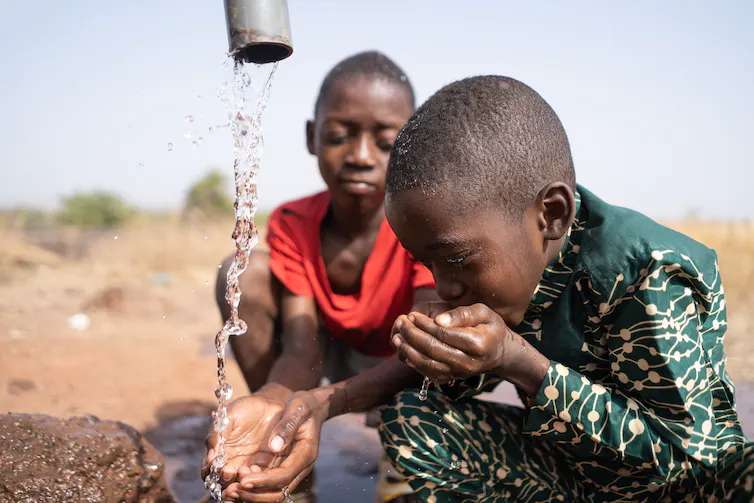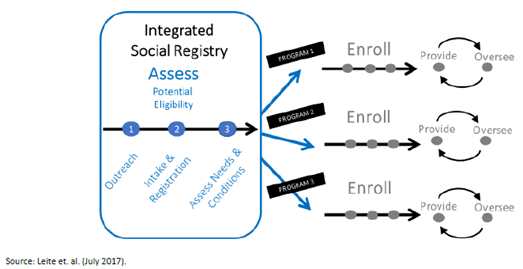Using Liberia as the case study, this training module will provide an overview of social protection!
Defining Social Protection

The National Social Protection Policy and Strategy of Liberia defines social protection “as a package of policies and programs, implemented as part of public action, that provide income or consumption transfers to the poorest, protect the most vulnerable against livelihood risks, and improve access to economic opportunities, to reduce food insecurity and deprivation, with increasing resilience of vulnerable households and groups to shocks”.
– Republic of Liberia
Social Protection (ECOWAS): Public and private measures designed to protect individuals against life-cycle crises that curtail their capacity to meet their needs. It includes all forms of social security, and strategies and programs aimed at supporting and ensuring a minimum standard of life and access to essential social services and care for all people.
– Economic Community of West African States (ECOWAS)
Step one: What is Social Protection and who’s responsible?
Step two: How does Liberia target, enroll, monitor and evaluate social protection programs?
•The Liberia Integrated Social Protection System (LISPS) activity aims to support the Government of Liberia (GoL) in establishing the key building blocks of a basic national safety nets delivery system to reduce poverty and improve resilience against shocks among extremely poor and food insecure households in Liberia.
•The Liberia Household Social Registry (LHSR) and Integrated Management Information System (IMIS), as well as supports the development of targeting mechanisms to help in easily reaching vulnerable populations in times of crisis and shocks.
Liberia Household Social Registry as a platform for SP coordination
Objective: to improve efficiency, enhance capacity, and strengthen the national social protection system in Liberia through the development of the basic building blocks of a safety net delivery system
Benefits of Social Registries & Integrated Management Information Systems (MIS)
•An information system that supports outreach, intake, registration, and determination of potential eligibility for one or more social programs. This promotes integration of social programs across various implementing agencies/partners.
•Can help avoid duplication of data collection efforts in the future as more programs are rolled out that require information about individual household members and poverty status of households.
•Can also serve as powerful tools for assessing the “demand” for social programs by profiling specific needs and conditions of various population groups

